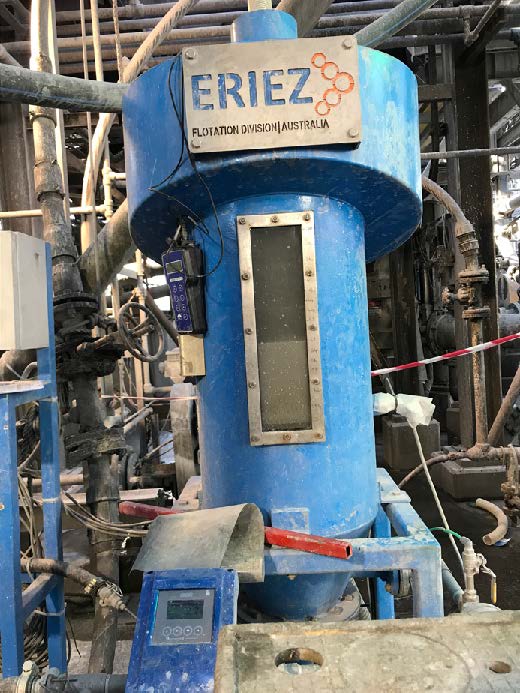Hydrofloat coarse particle flotation PHD program
 Researchers from The University of Queensland’s Julius Kruttschnitt Mineral Research Centre (JKMRC) propose the formation of a Collaborative Consortium for Coarse Particle Processing Research (CPR), to help co-ordinate and align research efforts aimed at producing practical and applied solutions to industrial issues surrounding coarse particle processing in general, and those of the Eriez HydroFloat™ in particular.
Researchers from The University of Queensland’s Julius Kruttschnitt Mineral Research Centre (JKMRC) propose the formation of a Collaborative Consortium for Coarse Particle Processing Research (CPR), to help co-ordinate and align research efforts aimed at producing practical and applied solutions to industrial issues surrounding coarse particle processing in general, and those of the Eriez HydroFloat™ in particular.
Potential benefits of applying Eriez HydroFloat™ technology:
- Increased plant throughput
- Energy savings, particularly in comminution due to reduced grinding effort and early removal of waste
- Improved water recovery performance
- Reduction in Acid Mine Drainage risk
- Potential for increased revenue due to reduced losses, higher productivity, lower energy use
- Viability of, and access to, new ore bodies that otherwise may be deemed uneconomic
Key Questions:
- What are the optimum chemical and hydrodynamic conditions for operating the HydroFloat™?
- What properties make an ore body amenable for treatment by the HydroFloat™?
- What is the best placement of the HydroFloat™ within existing processing flow sheets?
- How do you predict HydroFloat™ performance?
- How do we effectively scale-up the HydroFloat™ design?
- How does the use of the HydroFloat™ affect the overall circuit mass, energy and water balance?
- How can we make better use of existing flotation technologies for treating coarse particles to augment the HydroFloat™?
Sponsored by Eriez
